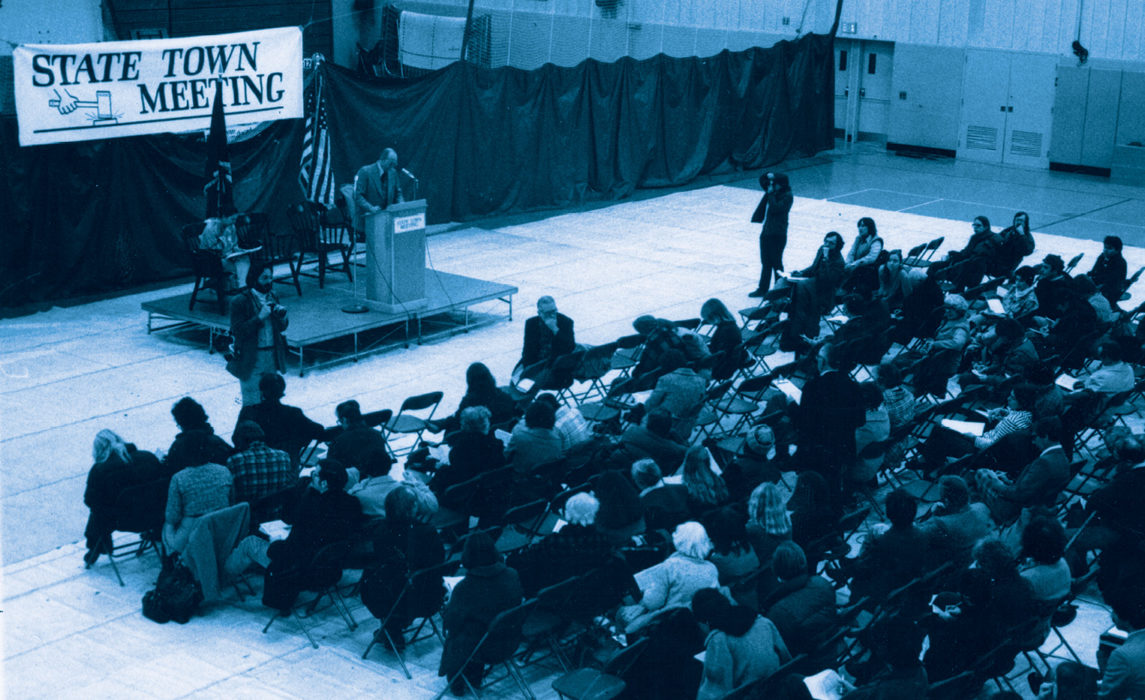IN MARCH, as sweeping emergency orders allowed public bodies to begin holding remote meetings for the first time, Common Cause urged public officials to limit government business to priority functions, and called for postponement of all non-priority business on agendas until after the state of emergency. As public bodies get better at providing public access by meeting the standards we have outlined below, they must take on a wider range of issues. Common Cause recognizes that this definition of priority business may necessarily expand over time, as state and local limits on in-person gatherings continue. Noting the many challenges to emulating meaningful in-person public participation remotely, Common Cause nonetheless urges government institutions at the state and local level across the country to demonstrate that they are rising to the challenge of ensuring open, transparent and meaningfully interactive on-line public meetings.
At this time when the COVID-19 pandemic challenges our governmental institutions and public bodies in unprecedented ways, our public officials must do everything reasonably possible to maximize transparency and remote public participation, even as we protect public health via social distancing. There is no one way to do this, but key steps include four key principles.
FOR 50 YEARS, Common Cause has been focused on ensuring our federal, state, and local governments are transparent and accessible to the public. As an organization dedicated to creating an open and honest democracy that is accountable to the people, we have led the passage of strong government transparency, open meetings, freedom of information, and ethics laws at all levels of government. These important laws help create opportunities for participation in and access to government, from allowing citizens to file public records requests, to allowing people to watch hearings and government meetings, to ensuring members of our communities can testify on legislation that affects us all. Now with the COVID-19 pandemic, we face a new challenge to ensure our public bodies are transparent and accessible to the people.


Public Notice
Provide adequate public notice. Make sure that the public receives widespread, advanced notice of meetings that includes a detailed agenda, information about how the public can access the meeting, and any documents that will be presented at the meeting.
 Public Observation
Public Observation
Allow opportunities for public observation. The public should have multi-modal access (internet and phone) access that does not come at a cost or require a subscription. All members of a public body participating in a meeting should be identified and remain audible and visible to the public at all times and anyone speaking should be clearly identified. Recordings of public meetings should be made available online after they have concluded, and minutes should be available as required by law.
 Public Participation
Public Participation
Provide for meaningful public participation. As required by law, public bodies should allow for multi-modal forms of public participation. If access for the public at large is materially interrupted, the public meeting should pause until the problem is remedied. Government bodies should make sure everyone can participate, including people with disabilities and those without internet access.
All government entities must, at a minimum, continue to comply with the requirements of the Americans with Disabilities Act (ADA). That may include providing, upon request, tools such as real-time captioning or transcription to encourage meaningful engagement by those community members with disabilities. Public bodies should ensure they provide translation services and other means of access free of charge to the public.
 Public Deliberation
Public Deliberation
Public bodies should continue public deliberation that allows those attending remotely to observe, and follow the body’s customary parliamentary process for voting. In many places, it is best practice to have roll call votes to ensure that people know how their public officials are voting in real time. Additionally, when holding executive sessions, public bodies should be careful to verify no one else is present.
These principles are just a floor. As public bodies across the nation move to remote meetings, many are innovating in real time. Common Cause encourages public bodies and elected officials to do everything they can to make our government transparent and accessible to the people they serve.
By working together and adopting these commonsense principles, we can make sure everyone has access to their government while also ensuring our public bodies are transparent and accountable to the people. These principles of open and honest government are the values Common Cause was founded on 50 years ago and will continue to be our focus in the COVID-19 crisis and in our future.